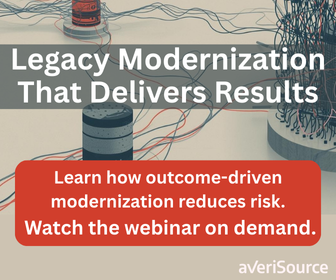The way you learned about mainframes was probably a mixture of courses, working with a more experienced colleague, and trial and error. And once you became a bit of an expert, it didn’t end there. You needed to learn more about Liberty profiles, about RESTful states, about network security, etc. The list of things to know about just continues to grow. And you’re not going to gain any more knowledge without experiencing the pain of learning.
Interestingly, all pain is psychological: it doesn’t “exist” anywhere; it’s just a subjective experience in the brain. You’ve probably heard of top athletes who break a limb and carry on playing without feeling any pain. Somehow, the adrenalin coursing through their body is turning off the pain that you or I would be feeling if we had the same injury. Of course, the opposite is also true: if the doctor tells you don’t have any physical injuries and there’s no source for the pain, but you still feel pain – then you are in pain!
Apart from taking drugs to reduce pain (or drugs with side effects that result in pain), the amount of pain we feel, i.e., the level of pain, is often greatly affected by the way we think about the pain.
Our attitude toward pain can influence how much we catastrophize it. Those who are prone to catastrophize tend to experience an exaggerated negative mental set. Of course, some people are quite stoical about pain, although they may never have experienced really bad pain. Some people tend to ruminate about pain – they think obsessively about painful episodes. And some people seem to feel quite helpless about pain. They think they can’t do anything to reduce their pain or cope with it.
Following knee surgery, for example, studies have shown that not only do those who are prone to catastrophize rate their own pain more intensely, they also tend to experience increased levels of disability. Following an injury at work, they’re more likely to experience chronic long-term pain rather than short-term pain that ends when the physical injury heals. They also tend to experience higher levels of depression, take more painkillers, and stay longer in hospital.
You might wonder how results like these are obtained, since they require researchers to induce pain intentionally, but leave no lasting damage. So, researchers do things like shine lasers onto the test subject’s skin, or get participants to hold their hands in a bucket of icy water until the discomfort becomes too great.
If you are a pain catastrophizer, what can you do? Well, it appears that one’s perception of pain can be reduced by receiving appropriate psychological therapy. Another, easier way to reduce pain and reduce pain catastrophizing is distraction. The simplest distraction is to hear a joke, but anything that takes your mind off the pain will help to reduce it.
If you’d like a pain-free way to learn more about what is really going on at other mainframe sites, an easy answer is to read the results of the annual mainframe users’ survey published in The Arcati Mainframe Yearbook (www.arcati.com). The 2017 survey results are available now at www.arcati.com/newyearbook17/17part2.pdf. Next year’s survey will begin sometime in October. At that time, if you’re prepared to give up 10 minutes of your time to complete the survey, we will send you a free copy of the January 2018 survey results. Your identity and company information will kept confidential and will not be divulged to third parties.
For next year’s survey, think about what it’s really like where you work. If the company you work for is also a vendor, consultant, or service provider, then please ensure that information is included in the Yearbook by completing the vendor profile form at www.arcati.com/vendorentry.
The Arcati Mainframe Yearbook is always FREE for mainframe users to download (vendor sponsorship pays for it). Each year it contains an annual user survey, an up-to-date directory of vendors and consultants, an information guide, a strategy section with papers on mainframe trends, a glossary of terminology, and a technical specification section. And each year the Yearbook is downloaded by over 21,000 mainframe professionals. The current edition is now available at www.arcati.com/newyearbook17.
It’s good to know there can be so much gain (knowledge of what’s happening at other mainframe sites) with so little pain (simply taking the time to fill in the survey).









0 Comments